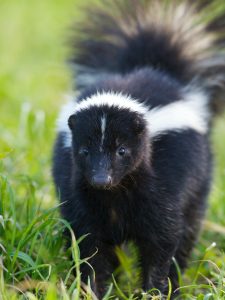The Complete Guide to Rabbit Repellents and How They Work
Introduction: What is a Rabbit Repellent?
A rabbit repellent is a device that is designed to keep rabbits away from an area.
Rabbit repellents come in many different types, each with its specific way of working and purpose.
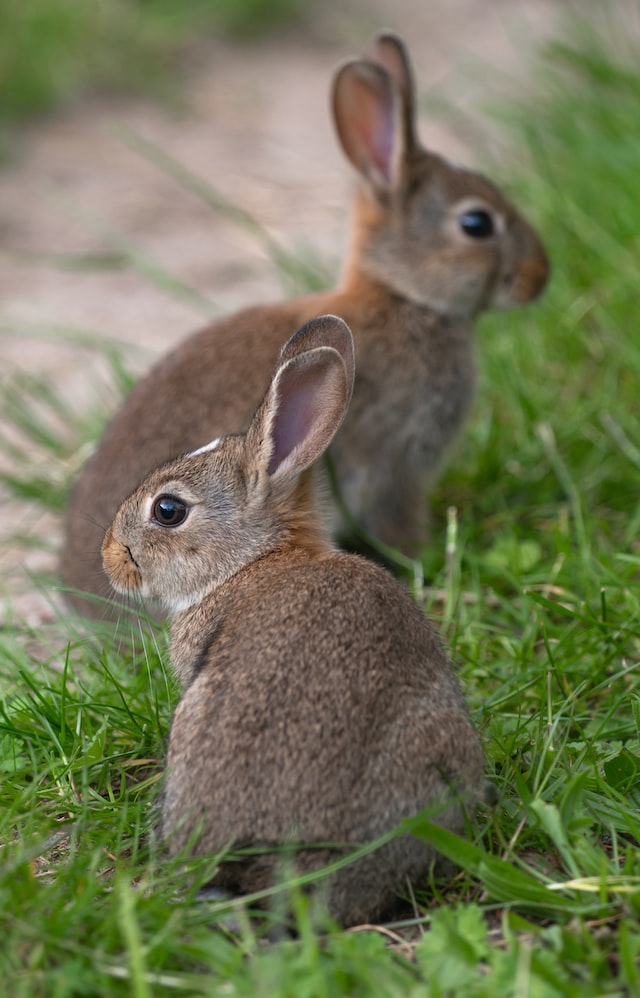
How to Best Keep Rabbits Out of Your Garden
The best way to keep rabbits out of your garden and away from your vegetable plants is to combine different strategies to keep them at bay and create a garden environment that does not attract them in the first place.
You can do that by:
- Fencing your property in,
- Let your cat or dog walk in your garden in a secure and supervised manner,
- Grow plants that rabbits and hares do not like
- Use rabbit and hare repellents where needed!
- Create a garden and yard that is not attractive to them
First steps of protecting your garden from rabbits and hares
Prevention instead of expulsion
Of course, it’s safest if rabbits can’t get into the garden at all. Consequently, it is a good idea to close all possible accesses off.
- Be sure to enclose the property with a close-meshed fence
- Maintain a minimum height of 60 centimeters; 100 centimeters is better
- Additionally, secure any existing openings with a close-meshed wire mesh
- Check fences regularly to see if they are damaged
What attracts rabbits to my garden?
Many times over, people tend to choose plants that furry critters like rabbits simply love eating and have a hard time staying away from! If you make sure not to grow any garden plants that rabbits love to eat, you are already one step ahead of the game.
Plants that rabbits love eating
Rabbits and hares are herbivores, meaning they primarily consume plants. Grasses dominate their diet, but they will eat other plants and vegetation, such as leaves, twigs, and berries. Rabbits are known to be particularly fond of eating the bark from young trees. They are quite voracious eaters for their size.
While different types of plants may be more appealing to rabbits at different times of the year, some plants seem to be universally popular with these animals. For example, many rabbits love eating clover, dandelions, and brambles.
They also enjoy eating a variety of grasses and vegetables. Rabbits love to eat garden plants like carrots, peas, and cabbages.
How Does A Rabbit Repellent Work? How Do You Apply a Rabbit Repellent?
Rabbit repellents are a popular way to keep rabbits away from your garden. There are several rabbit repellents, and you can choose the one that suits you best.
The most common type of rabbit repellent is a chemical spray. The spray will create an unpleasant smell for the rabbits, and they will not want to come near it. This type of repellent is unsafe for children or pets, so make sure they do not come in contact with it.
There are also some other types of rabbit repellents that you can use as well, such as a motion-activated sprinkler or an electric fence.
Rabbit repellents can be applied indoors and outdoors to deter rabbits from entering your yard. They are usually more effective when used in the yard, but some repellents can be used on fences and other structures. Apply them to plants, trash cans, and any other objects that rabbits may find attractive.
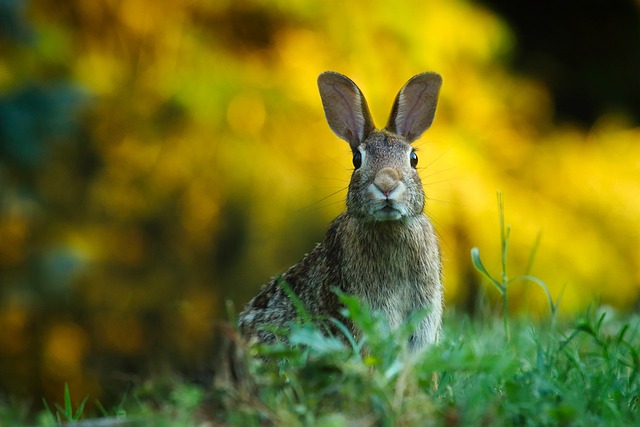
Repel rabbits with scents
Rabbits can be deterred from entering the garden with certain scents. For example, a homemade natural rabbit repellent that contains a particularly hot sauce is highly recommended.
Spraying certain plants (leaves) that rabbits eat directly makes sense. The process must be repeated over several days.
Rabbits in the garden
Wild rabbits not only nibble diligently on your vegetables, but they also dig holes. These can sag when stepped on, causing a sprained ankle. They also like to live in communities and hide inside their burrow. So if you’ve spotted a rabbit in your backyard, its siblings are probably not far away.
Compared to hares, they are relatively small and have shorter ears. Their fur is colored brown to reddish brown.
If you only suspect rabbits in your garden so far, you should also look for corresponding holes in the ground in hidden corners. Not only is a rabbit burrow larger than vole burrows, but there are also no mounds of dirt around the entry, which is typical for voles or moles.
What natural remedies are there against rabbits?
Protect vegetables from hares and rabbits
There are two animal-friendly ways to protect your vegetables from hares and rabbits: deny access or spoil the taste of their food for them.
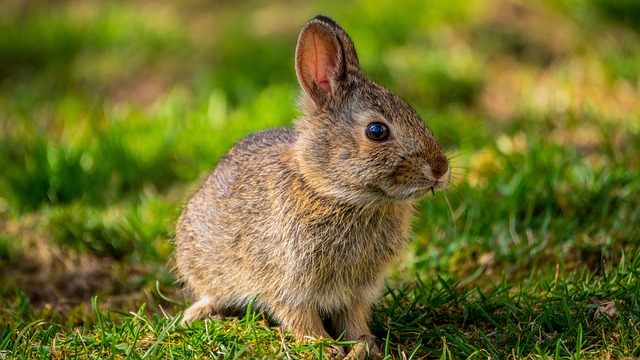
Rabbit protection with net and fence
You can stop them above ground with the help of nets you cover your vegetable patches with and dig in at the edges for insurance. Alternatively, you can protect an entire garden or individual beds with an appropriate fence. It is important to ensure that this is not only high enough but also buried about 30-50 cm deep, as rabbits and hares like to dig. You can also protect young berry bushes or young fruit trees individually from nibble attacks with rabbit wire.
Drive away rabbits
Another possibility is to scare the animals away. They have sensitive noses and can be driven away by unpleasant smells or tastes that are based on organic ingredients. If you sprinkle the leaves with blood meal or garlic oil, this is usually too bitter for the herbivores, and the agents also fertilize the soil when they are washed away by rain.
Spraying plants with a mixture of water, a little dish soap, chili sauce, or crushed garlic is also recommended. If the plants are damaged, the soil around the vegetables can be sprayed with it instead.
Rabbits don’t like lavender either. However, if it is too much trouble for you to drip lavender oil regularly, you can use ecological products from specialist shops containing lavender oil.
Dog or cat hair distributed in the vegetable beds is intended to suggest the presence of predators to the rabbits. You have to keep putting the hair there, though, for it to be effective.
The fencing of the area to be protected, driving the animals away with the help of a water jet, the scattering of granules, or the use of so-called “rabbit repellent spray.” But nasty chemicals are something we generally advise against. Another method is to drive away the rabbits completely naturally – with plants.
plants as repellents
It sounds strange, but it works: plants, of all things, can drive them away. However, only special plants have this deterrent effect on the rodents – rabbits (and hares) simply do not like certain smells. This includes lavender, for example. So if you plant a lavender “front” in the garden or even place individual lavender plants between the vegetables, you have a good chance of driving the animals away because, to them, it stinks. Dripping lavender oil on the plants to be protected also helps in an emergency, but it has to be repeated frequently because the smell dissipates relatively quickly.
Spicy chili
Many hobby gardeners swear by chili spray or granules, i.e., chili flakes. Dilute a hot chili sauce with a bit of water and fill all of it into a spray bottle. With this spray, you can cover the plants to be protected. In most cases, there are no issues for the plants caused by the ingredients, but the rabbits don’t like the smell at all.
Another way of keeping rabbits away is using automatic water sprinkler systems with motion detection.
Both methods are pretty effective, but the rabbits may still come back. You will need patience with this method and repetition for lasting results.
What are the Best Rabbit Repellents on the Market?
Rabbits and other rodents can really reproduce quickly and become a nuisance because of their destructive habits. They can wrack havoc on your lawn, garden, and landscaping. To keep your property free from these furry pests, you will need to purchase a rabbit repellent. There are thousands of rabbit repellents on the market today, so it can be difficult to find which one is the best option for you.
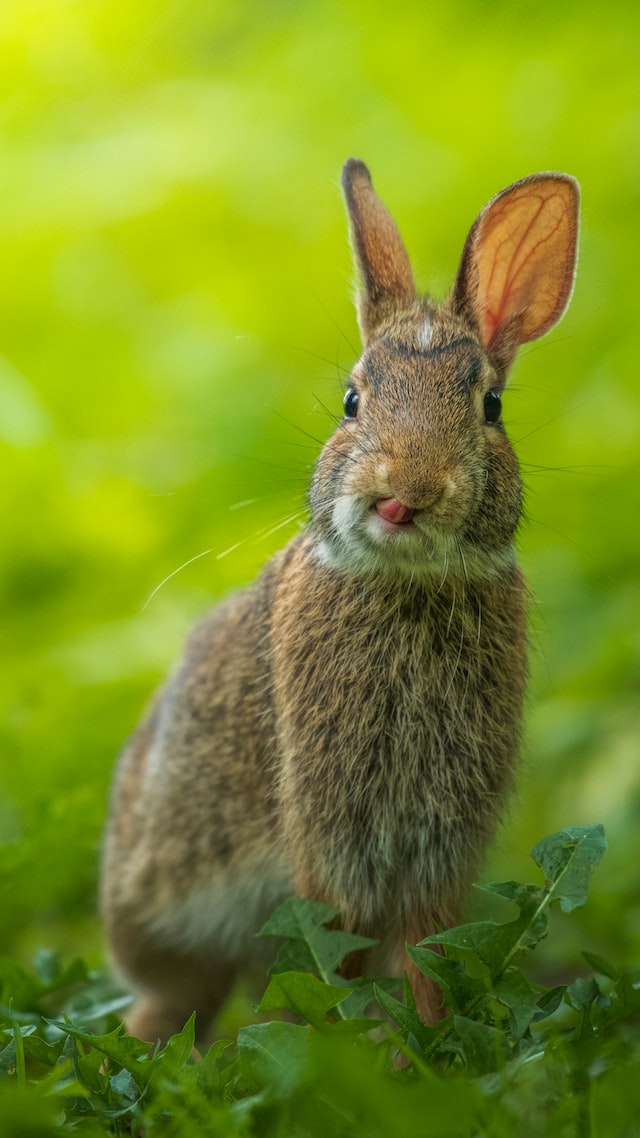
The following are some of the best rabbit repellents on the market:
Should you decide to purchase through the links, we receive a small commission as Amazon Affiliates.
I Must Garden Rabbit Repellent: Mint Scent Rabbit Spray for Plants & Lawns
- SPECIFICALLY TARGETS RABBITS – This repellent was formulated for one specific purpose – to protect plants from rabbit damage. It contains concentrated botanical oils from plants they naturally avoid eating – creating a spray that tastes and smells terrible to rabbits
- PROTECT YOUR LAWN & GARDEN – Safe to spray directly on grass and any plants that are being damaged by rabbits. Contains triple the number of active ingredients than any other repellent for stronger protection
- PLEASANT SCENT – Don’t be fooled by the fresh mint scent! Every ingredient in this repellent plays an important role in protecting your plants – especially the botanical mint oils that smell nice to people, but are highly irritating to rabbits
- FORMULATED TO LAST LONGER – Contains strong natural sticking agents that make the repellent adhere to the leaves of your plant. Provides long-lasting protection – does not need to be re-applied after average rainfall
- SAFE FOR PETS & POLLINATORS – Made from natural ingredients and botanical oils that are safe for pets, people, and the environment. Contains NO harmful chemicals or glues that threaten nearby wildlife
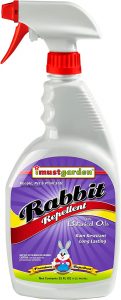
Liquid Fence Deer and Rabbit Repellent Granules
- REPELS DEER AND RABBITS: Deer and rabbits don’t have to eat vegetation for the repellent to be effective—they have a natural aversion to the scent.
- GRANULAR FORMULA: Use to treat low-growing flower beds, landscaped ornamental gardens, ground cover and lawns.
- RAIN-RESISTANT: Granules starts to work immediately.
- HARMLESS TO PLANTS AND ANIMALS: Won’t harm plants and animals when used and stored as directed.
- APPLY YEAR-ROUND: No need to rotate with other brands – animals’ natural aversion to Liquid Fence Deer & Rabbit Repellent will never diminish.
Enviro Pro 11003 Rabbit Scram Repellent Granular Shaker Can
- Rabbit scram repellent granular shaker can
- No mixing is required and the granular form is easily sprinkled in any conditions
- Rabbit Scram is not harmful to humans or animals.
- Periods of extended sunlight with little or no rain will result in the need to apply Rabbit Scram more frequently
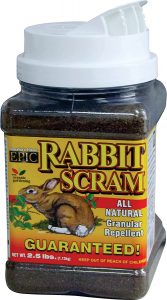
Bonide Repels-All Animal Repellent, Deer and Rabbit Repellent Granules
- TRONG REPELLER – This unique blend of ingredients causes mild irritation to animal’s nasal passages. When an animal touches, tastes, or smells Repels-All Animal Repellent, it triggers the natural instinct to escape/avoid and the pest leaves.
- ANIMALS AFFECTED – Granules repel species of squirrel, deer, rabbit, chipmunk, mouse, skunk, rat, beaver, raccoon, porcupine, bird, groundhog and more rodent species.
- DEFEND YOUR GARDEN AND HOME – Apply around homes, gardens, garbage cans, barns, swimming pools, sheds, woodpiles, decks, patios, and campsites to prevent grazing, chewing, gnawing, nibbling and browsing damage to plants and property.
- BIODEGRADABLE – Repels-All granules are biodegradable and will not harm animals, lawns, gardens, flowerbeds, or other desirable plants when used as directed.
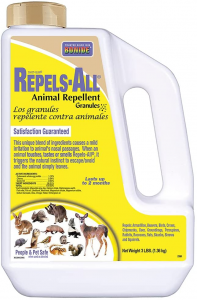
Liquid Fence Deer & Rabbit Repellent Ready-to-Use Spray
- REPELS DEER AND RABBITS: Deer and rabbits don’t have to eat vegetation for the repellent to be effective—they have a strong dislike for the scent
- SPRAY ON PLANTS: Use to treat gardens, flowers, shrubs, trees and vines
- RAIN RESISTANT: Ready-to-use liquid formula starts to work immediately
- HARMLESS TO PLANTS AND ANIMALS when used and stored as directed
- APPLY YEAR-ROUND: No need to rotate with other repellent brands – animals’ natural aversion to Liquid Fence Deer and Rabbit Repellent Ready-to-Use2 will never diminish
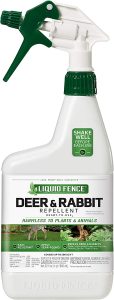
Rabbit Repellent FAQS
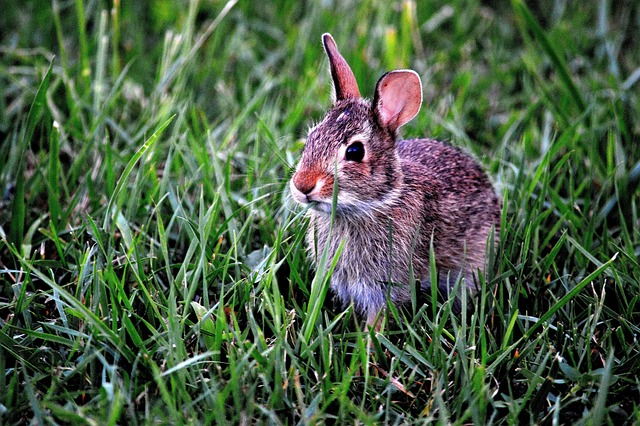
What smells will keep rabbits away?
Rabbits and hares, in general, dislike strong smells like lavender, garlic, chili powder, urine of foxes and other predators, vinegar, coffee grounds, peppermint, sulfur, geraniums, and wax begonias.
What really works to repel rabbits? How do I get rid of rabbits permanently?
The best results are usually achieved by combining scent-based repellents, taste-based repellents, and physical barriers with each other.
Will coffee grounds repel rabbits?
They might if you give it a tray! Most mammals like deer and cats have a distaste for its smell. But you will have to keep spreading it because water washes it away.
Conclusion
Some hobby gardeners also report positive results with repelling rabbits with rags soaked in gasoline, which attack the animals’ sense of smell, white barbecue lighters (they don’t like paraffin), or the spreading of fishmeal or fish oil. But all these smells are a nuisance for humans as well. Animal hair from dogs and cats is better: it suggests that rodents like bunnies are close to natural predators.
In conclusion, there are a variety of rabbit repellents available on the market. Some are more effective than others, but all have the potential to help keep bunnies away from your garden and favorite plants. If you are having trouble with rabbits damaging your plants, be sure to try out a few of these repellents and see which one works best for your needs.
Inevitably, there will come a time when wildlife will damage plants in your garden. The key to a successful garden is to learn how to accept and live with a certain degree of wildlife damage now and then and adapt to it. There are steps you can take to make your garden less susceptible to damage and prevent rabbits from living there, including:
-Planting native plants that are naturally resistant to wildlife damage.
-Building a fence or barrier around the garden to keep animals out.
-Using deterrents such as netting, wire cages, or scare devices to keep animals away from plants.
-Regularly checking plants for damage and removing any dead or damaged leaves, flowers, or fruit.
And other methods of deterring wildlife that we have covered on our blog before.
Like any other wild animal, rabbits and hares play a very important role in our world’s ecosystem. They are crucial in controlling invasive plants, such as weeds, promoting plant diversity, and are important prey for many other animals.
It is therefore in everybody’s interest to find humane ways of discouraging rabbits from eating garden plants. And we believe that you can do this without harsh chemicals or harming them with electric fences!
Please also see our lists of snake repellents and deer repellents for further product recommendations.






